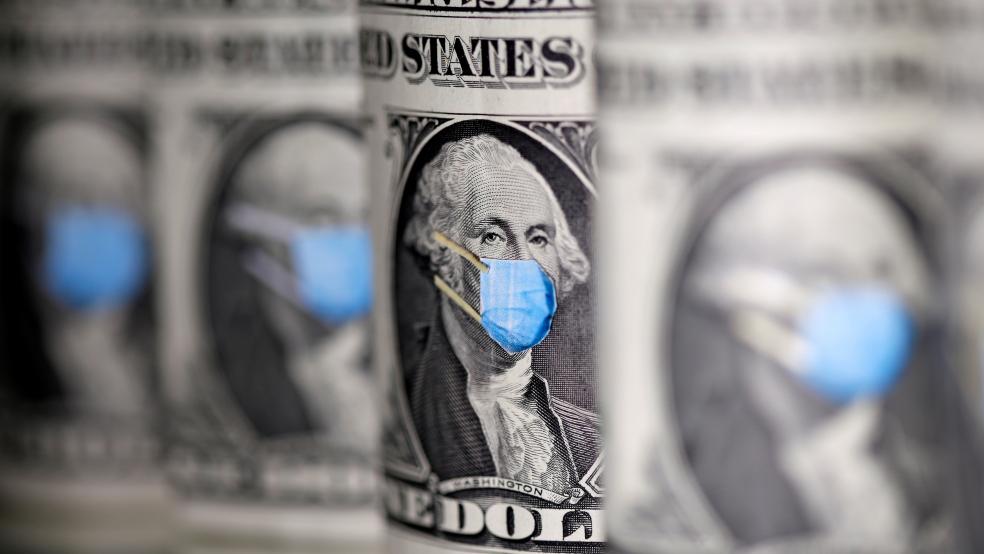Another prominent economist is warning that President Joe Biden’s $1.9 trillion Covid relief plan is too large, adding his voice to that of Larry Summers, the former Treasury Secretary under President Bill Clinton and top economic adviser for President Barack Obama, who sparked a vigorous debate on the issue with an an op-ed for The Washington Post last week warning that Biden’s plan was risky.
Olivier Blanchard, the former chief economist at the International Monetary Fund and past president of the American Economic Association, says he agrees with Summers, suggesting that Biden’s plan may be nearly $1 trillion more that what’s needed and could overheat the economy.
“I am known as a dove,” Blanchard wrote as part of a series of tweets over the weekend. “I believe that the absolute priority is to protect people and firms affected by covid. Still, I agree with Summers. The 1.9 trillion program could overheat the economy so badly as to be counterproductive. Protection can be achieved with less.”
The case against a $1.9 trillion package: As we told you last week, Summers argued that Biden’s big plan comes with a couple of big risks. First, because the plan calls for spending several times more than is needed to fill the hole left in the economy by the coronavirus recession — at least based on official estimates —it might overheat the economy and produce a rise in inflation. That could prove problematic because fiscal and monetary policymakers may not respond quickly enough to the inflationary pressures.
Second, spending on the scale Biden proposes might reduce the political appetite for other much-needed public investments in areas including infrastructure — the second phase of Biden’s two-part proposal. “After resolving the coronavirus crisis, how will political and economic space be found for the public investments that should be the nation’s highest priority?” Summers asked. “Is the thinking that deficits can prudently be expanded longer and further? Or that new revenue will be raised? If so, will this be politically feasible?”
Critics say Summers is way off base: Summers’ piece generated a strong backlash. Economists at the White House and elsewhere pushed back on various parts of his argument, suggesting that Biden package should be seen as disaster relief and not as traditional stimulus, that the hole in the economy might be far deeper than official estimates indicate and that fears about inflation are unwarranted or even downright weird given recent trends and the Fed’s ability to raise interest rates to snuff out pricing pressures. On balance, critics argue, the risks of doing too little remain substantially higher than those from doing too much.
Treasury Secretary Janet Yellen acknowledged in television interviews on Sunday that rising inflation would be a risk with the $1.9 trillion package, but said the policymakers have the tools to deal with that problem if it arises. "I've spent many years studying inflation and worrying about inflation, and I can tell you, we have the tools to deal with that risk if it materializes," she said. "But we face a huge economic challenge here and tremendous suffering in the country. We've got to address that. That's the biggest risk."
Summers responded to many of the criticisms in a new Washington Post piece on Sunday, arguing that he would support a plan the size of Biden’s, or even larger, if it focused on long-term national needs and was “directed at promoting sustainable and inclusive economic growth for the remainder of the decade and beyond, not simply supporting incomes this year and next.” He also expressed some doubt that the Federal Reserve could tamp down any surge in inflation without causing a recession.
Blanchard also expanded on his concerns in a new a new podcast interview with Econofact, a nonpartisan publication of Tufts University, saying that his guess as to the proper size of a relief package now is $1 trillion:
“I worry that if we spend 1.9 trillion, then we are going to increase demand by so much that we'll get overheating. The economy will not be able to actually increase production enough to satisfy that demand. And then we may get inflation, but not just one or 2% more than now, but substantially more. We may force the Fed to react by adjusting rates up, in order to slow down the economy and acting faster and stronger than they really want to and I think we should avoid that. So I'm all in favor of a big package, but my big package number is closer to 1 trillion, not 1.9.”
The bottom line: Summers said in his original piece last week that “much of the policy discussion has not fully reckoned with the magnitude of what is being debated.” His piece certainly changed that, sparking days of back and forth among economists and others. Check out the News and Views links below for much more on the debate.





